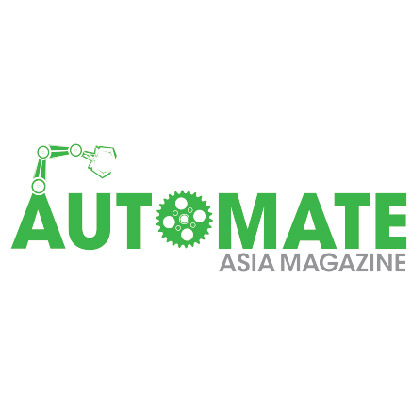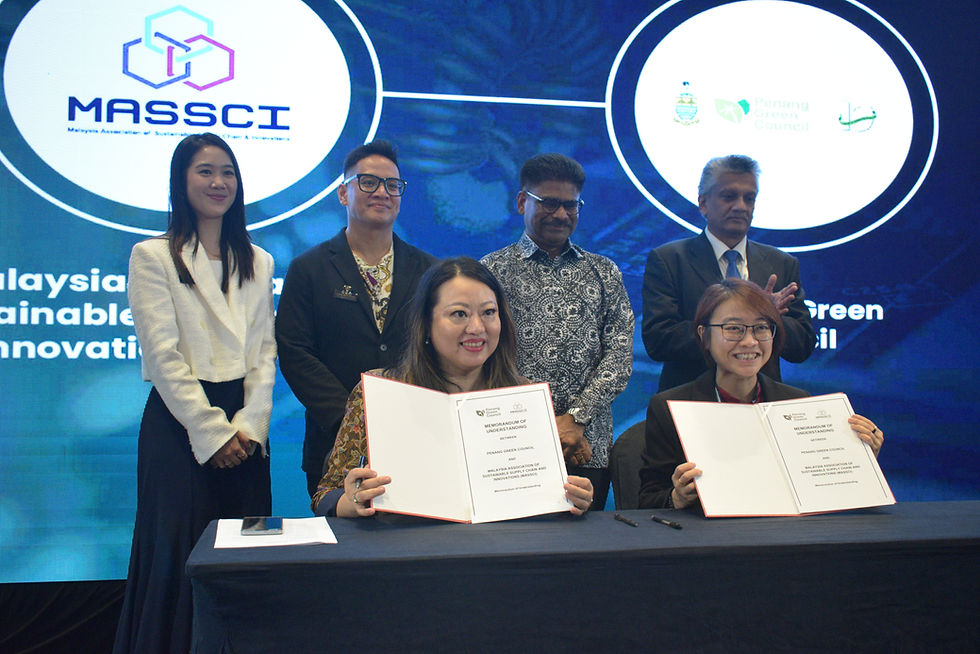Interview with David Chia, Chairperson of the Smart Automation Industry Group
- Automate Asia Magazine

- Sep 13, 2021
- 5 min read
Interview with David Chia, Chairperson of the Smart Automation Industry Group at Singapore Manufacturing Federation.

Mr. David Chia is currently the Managing Director of Beckhoff Automation, responsible for the sales and business development in Southeast Asia. He has started his career in the Industrial Automation and Controls industry more than 20 years ago and had multiple function experiences with the market leaders from Germany and the US.

David works actively with the local business associations to push the envelope on industrial developments. He is Chairperson for Smart Automation Interest Group in the Singapore Manufacturing Federation, Assistant Secretary in the Singapore Industrial Automation Association, and a member of the Singapore Standards Tech Comm that looks into the standards for smart manufacturing. He is also Chief Expert for the Industrial Controls trade in the Worldskills Singapore competition. Since 2019, he has been appointed as Head of OPC Hub ASEAN by OPC Foundation to promote, educate and implement OPC technologies specific to Industry 4.0.
Given his knowledge and expertise in the field, he often works with educational institutions to share his passion for technology and the marvels of what engineering brings. David believes in the importance of growing the ecosystem as we all benefit through collaboration and cooperation, and healthy competition.
1. Congratulations David on your recent appointment as the Chairperson of the Smart Automation Industry Group at Singapore Manufacturing Federation. Perhaps you would like to share a bit about your roles and responsibilities as the Chairperson and what is the vision that you have undertaking this steering role?
Singapore Manufacturing Federation is a collection of more than 5,000 member companies, and all are grouped into either 1 of 10 industry groups that best represent their scope of business.
Smart Automation represents the product, technology, and solution enablers among our members, where our solutions cut horizontally across multiple industries, and vertically within the different manufacturing processes and disciplines.
As the Chairperson, I act as the link between our members and the federation at large, to foster closer links between members, to generate business opportunities among ourselves, and to promote and/or create solutions that are class-leading towards Industry 4.0.

Pre-Covid, we also have activities like overseas missions, trade fairs, and business matching, so my role is to get our members involved and also advocate for relevant activities for our IG.
I also bridge our group over to external parties, particularly with the interaction of government agencies and other trade associations and chambers (TACs). I am constantly looking at ways how we can match demand to supply, and match ideas to knowledge creations.
This will help us to create a vibrant and active eco-system where we can cooperate, collaborate and sometimes compete, but all in good faith.
2. Smart Automation Industry Group had changed its name from ATIG during the earlier years citing the shift to focus on Digital Manufacturing, how far ahead is Singapore compared to its peers in the region in digitalizing manufacturing processes?
We changed our name to represent the “Smart” in almost everything from smart manufacturing to the smart building to smart city and smart nation. In particular, we think it’s appropriate to signify a bold step into Industry 4.0.
The pace so far is varied; while there are companies who are early adopters and ran multiple pilots in a trial-and-error approach, there are also many taking a wait-and-see approach.
However, many useful initiatives were rolled out, with the Economic Development Board (EDB) partnering with TUV SUD to come up with a Smart Industry Readiness Index (SIRI) which I see as a condensed version of Germany’s Reference Architecture Model Industry 4.0 (RAMI 4.0).

The Industrial Transformation Asia Pacific exhibition series was also started, allowing the showcase of leading technologies, success stories, and best practices from other developed countries and leading automation companies like Siemens, Beckhoff, Schneider, and ABB, just to mention a few.
Personally, I would see that Singapore is perhaps 1 or 2 steps ahead in the region, but also 1 or 2 steps behind that of Germany.
3. Digitalization in manufacturing had always been deemed as a big overhaul of manufacturing processes and complicating for smaller manufacturers with massive costs, how could we encourage the local SMEs to think otherwise? What incentives (if any) are there they could actually tap on to assist them?
Any transformation journey must have a strong WHY followed by a clear HOW and accelerated by SUPPORT that comes in to share the risk associated with any change.
WHY. Our manufacturers must recognize that change is necessary if one does not want to be overtaken and made obsolete. It is about survival here.
HOW. There are several model factories set up across multiple institutions to showcase "Industry 4.0", e.g. at SIMTech, ARTC, and Singapore Polytechnic, many of whom also provide consultancy to assist the companies. There is also an Industry 4.0 Human Capital Initiative (IHCI) program dedicated to equipping companies with people management and job redesign skills required for successful transformation.
SUPPORT. There are many schemes administered by Enterprise Singapore (ESG), including Productivity Solution Grant, Enterprise Development Grant, and even SkillsFuture Enterprise Credit of $10,000 which can be used to offset different program and training courses.

A few years ago, the common remarks were "what's in it for me?", "let others do it first", "what's the business case?" and "this is only for big companies". Many established family businesses were also more concerned about succession than transformation.
In the past 1½ years, COVID-19 has clearly shown disturbances that we thought not possible. Shortage of skilled workers, restrictions of workers on the shop floor, supply chain disruption, etc. In a way, it is a wake-up call to many who are still sitting on the fence.
4. Digitalizing in the manufacturing industry is a necessity nowadays and no longer a choice, is this true? What are the consequences for companies not willing to commit to it now or the next 5 years?
The purpose of Industry 4.0 in Singapore is to maintain the relevance of manufacturing to our country; both essential manufacturings to serve the basic needs of the country, and high-tech manufacturing to keep our relevance on the world map.

From a GDP perspective, it helps to “balance the basket” when we go through the economic cycles.
Companies who change will likely transform, survive and thrive while companies don't get left behind. It is still a choice for the business owners, but I do question them "why not?" especially when aids are readily available today.
5. Smart Manufacturing is promoted very aggressively to manufacturers in Singapore but we do not really see much adoption of it yet in local factories, how far are we away from seeing a full-fledged Smart Manufacturing facility here? And what are the factors hindering the progress?
The key here is letting the manufacturers see the WHY, but with COVID-19 unveiling all the disturbance and disruption, my take is, the adoption pace towards transformation will only speed up from now onwards.







-01.jpg)


